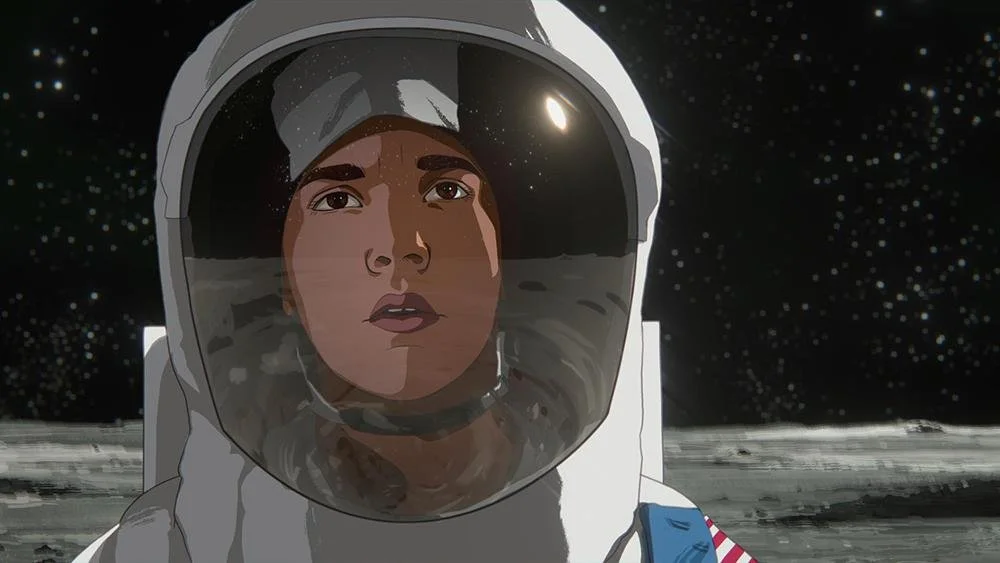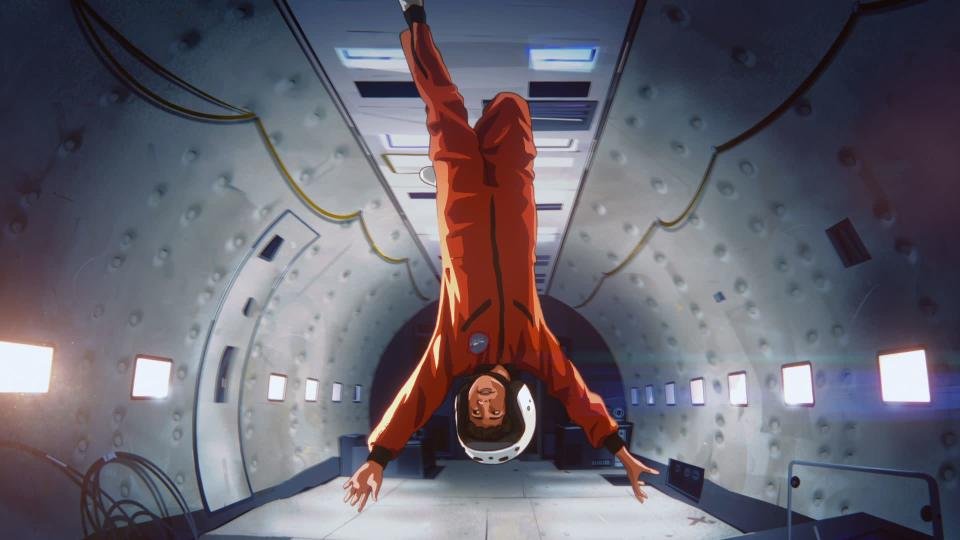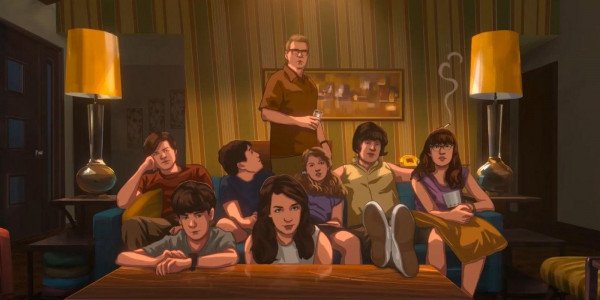Apollo 10 1/2 Review
8/10
Richard Linklater has a remarkable ability to capture the countless snapshot memories that populate our memories. When I first heard about Apollo 10 ½ I was expecting an 80s-inspired kid’s adventure film. It certainly has elements of films from that era like Flight of the Navigator and The Last Starfighter. Those influences ended up being a minor component of the film. I should have expected Linklater to take an unconventional approach to the story. Apollo 10 ½ feels more like a documentary than a modern kid’s film.
The actual Apollo aspect of the story is a fairly small part of the overall picture. Instead, we are treated to a wonderful portrait of life in Houston in the 1960s. Jack Black narrates the story as the older version of the main boy Stan. He lives in a suburban home with his parents and five siblings. The film jumps into the Apollo aspect of the story after a brief character introduction. Two NASA officials inform Stan that they accidentally built a space shuttle too small for the average astronaut, so they need a kid to go into space instead. The training sequences prepping Stan for his journey to space are cut short, but Jack Black informs us that he should give context as to what was happening in America at the time. Specifically in Houston where the film is set.
This is where the documentary-inspired part of the film comes into play. Black talks about life in Houston at the time, specifically how there was a fascination with the space race since Nasa employed so many people in town. Many parts of the city were built during this period. The suburbs expanded the scope of the city and enticed many families to move in. Stan’s father works at Nasa in a managerial capacity, helping to organize the day-to-day operations. Stan thinks this is not as cool as other jobs. He wishes his dad had a more hands-on job that he could brag about to his friends.
It’s understandable why Stan feels this way. There was an enormous adoration for NASA at the time amongst the youth. To a kid, it can be hard to comprehend why a desk job is so important to a company’s functioning. At that age you imagine anyone working for such an organization must be exactly like Captain Kirk, conquering the galaxy with immense bravado and swagger. Stan’s father is passionate about his job and is visibly on the edge of his seat when he sees the news covering the Apollo 11 moon landing.
The Apollo 10 ½ mission happens right before the official moon landing. Nobody can know about Stan’s journey. He cannot even tell his own family that he was on the moon before the “official” moon landing. Stan’s home life is the primary narrative focus of the middle section of the film. We see how different life was back then. Often, they are just insignificant things, like how he would fight with his siblings over who gets to watch the TV since there were so few channels. Whoever controlled the TV must control their turf. One of the few times they would all gather together was to watch the series Dark Shadows.
The other members of the family are painted in a general kind of way, rather than delved into. There is an overall sense of their personality, but since we are seeing this world through the eyes of one boy, we are only privy to the way he sees them. Any film set in a bygone era can risk being overly nostalgic and romanticized. Apollo 10 ½ has a wistful view of the sixties, but it does not sugarcoat the details. Stan was too young at the time to be fully aware of the political turmoil. To most people in his life, the Vietnam war and racial turmoil were contained within the confines of the television. They rarely saw any of these issues in their everyday lives.
I was so enraptured by this portrait of growing up in the 60s that I was almost disappointed when the film went back to the main Apollo plot. By the time it did, I was given so much context of the time that it framed the rest of the film in a more relatable lens. That is what I love about Linklater’s films when they are at their best. These windows into everyday people’s lives. Anything from Jesse and Celine walking together through the streets of Vienna in Before Sunrise, to Stan and his brothers and sisters sitting in the back of the family’s pickup truck on the way to the beach, blissfully unaware of how dangerous that is.
That is key to what makes the film so enjoyable, the Norman Rockwell approach to characters and storytelling. There are not many filmmakers who can capture these key moments in life. These may seem insignificant at the time, but years later they stick with you for the rest of your life. Apollo 10 ½ is Linklater’s 3rd use of Rotoscoping, which is an intriguing animation method where a film is shot and then every frame is traced over afterward in post to create a strange type of animation. In the past, this style can look rough and awkward with its movements. Characters and objects would appear to glide into place when a new scene starts. Here, the technique has been improved to the point where I didn’t notice any animation hiccups like that.
Those expecting a typical kid’s adventure film should know in advance that it is not like that. It’s more a slice-of-life story with a space element. The best parts of the film are when we get this in-depth look into these people’s worlds. Their parents are shown from a distance since that is how we often see our father and mother at that age. We are too focused on being a kid and having fun at the moment to wonder about the lives of our parents. When Stan was told this space mission is confidential, I was expecting a confrontation moment between him and his family where they scold him for lying about such a monumental expedition.
The film seems to be leaning in that direction with the setup of his father working at NASA. Instead, Stan keeps the mission secret from everyone. All he can tell people is he went to a summer camp. Some would argue that most kids would blab a secret like this the first second they get a chance to show off. I definitely would only keep that secret for about five minutes. I am glad the film doesn’t create tension with the family by Stan harboring this incredible secret. It highlights how we never really know the rich lives of those in our family when we have so many other distractions.
Sometimes I felt like the film could have used a couple more NASA scenes to balance out the slice of life portion of the story. To give a bit more insight into the inner workings of that world viewed through Stan’s eyes with how much he romanticizes space travel thanks to all the Sci-Fi films and shows he watches. That is a pretty minor gripe though. Overall, it is a wonderful film that can stand among Linklater’s best.









